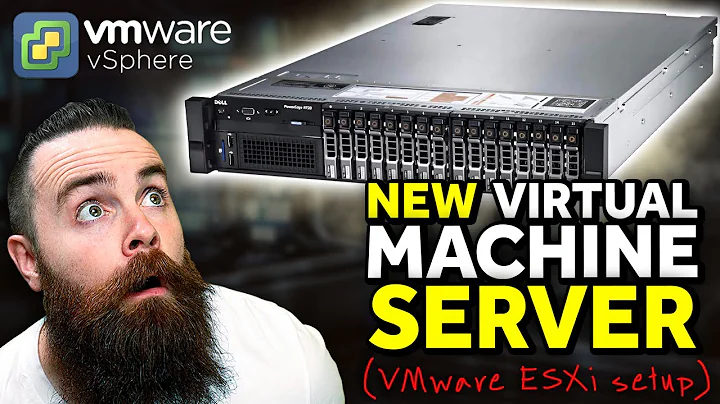How do I install/run VMware Server 2.0.1?
Installation
VMware Server 2.0.1 has signed drivers, so it installs on Windows Vista and Windows 7 without a problem. This version is run from a web interface and installs a Tomcat server. During installation, I chose the default addresses (HTTP port 8222, HTTPS port 8333) and Windows authentication.
Configuration
The VMware Server Home Page opens the SSL address, which provides a certificate signed by your own machine, which is probably not a trusted certificate authority. You can edit the Start Menu link to use the regular HTTP address, which loads without a problem, or we'll fix the certificate problem later.
VMware Remote Console Plug-in
Create or add an existing virtual machine. Highlight it in the left navigation pane and start it. Click on the Console tab and then anywhere inside that page. The page will request installation of the VMware Remote Console plug-in. Do it. (You may need to restart the browser and navigate back to this page.)
It should display an error.
Cannot access virtual machine console.
The VMware Remote Console plug-in failed to connect to your virtual machine "Virtual Machine 1".
Your browser is running in 'Protected Mode'. In order for the VMware Remote Console Plug-in to work correctly, you should add this server to the list of trusted sites.
If this problem persists, contact your system administrator.
Adding this site to the trusted sites list.
- Go to Tools menu > Internet Options > Security tab.
- Click Trusted Sites and then the Sites button
- The VMware Server Home Page should be in the Add this website to the zone text field.
- Click the Add button.
- Click Close/OK buttons to get back to the browser.
- Restart the browser.
Home Page Certificate Error
Now that the site is trusted, you can fix the untrusted certificate. Navigate to the VMware Server Home Page.
- Choose Continue to this website
- You'll see Certificate Error in the address bar.
- Click that and click View certificates.
- You’ll get the properties window for the certificate.
- Click Install Certificate.
- Manually place the certificate in the Trusted Root Certification Authorities (you may need to browse for it).
- Click OK/Finish/Yes to get back to the browser.
- Restart the browser to confirm trust.
Restart the virtual machine (or if you left it running, view it) and click the Console tab. Click anywhere in that page to open the VM. It should open a new window with your VM running!
Related videos on Youtube
Anthony Mastrean
Updated on September 17, 2022Comments
-
Anthony Mastrean over 1 year
I want to install and run VMware Server 2.0.1 on my desktop for personal use (non-enterprise). I'm interested in the x64 guest OS and multi-core support, both features unavailable in Windows Virtual PC. I’m running Windows 7 and IE 8.
Some of the problems I've encountered on other VMware product installations and uses were
- Unsigned drivers
- Untrusted self-signed certificates (for products running in a web UI)
- IE doesn't allow the web UI to run certain components
-
Anthony Mastrean over 14 yearsThanks Steiv, I wrote this just to get it out of my head and permanently saved on the internet!
-
Steiv over 14 yearshahaha, that works too




